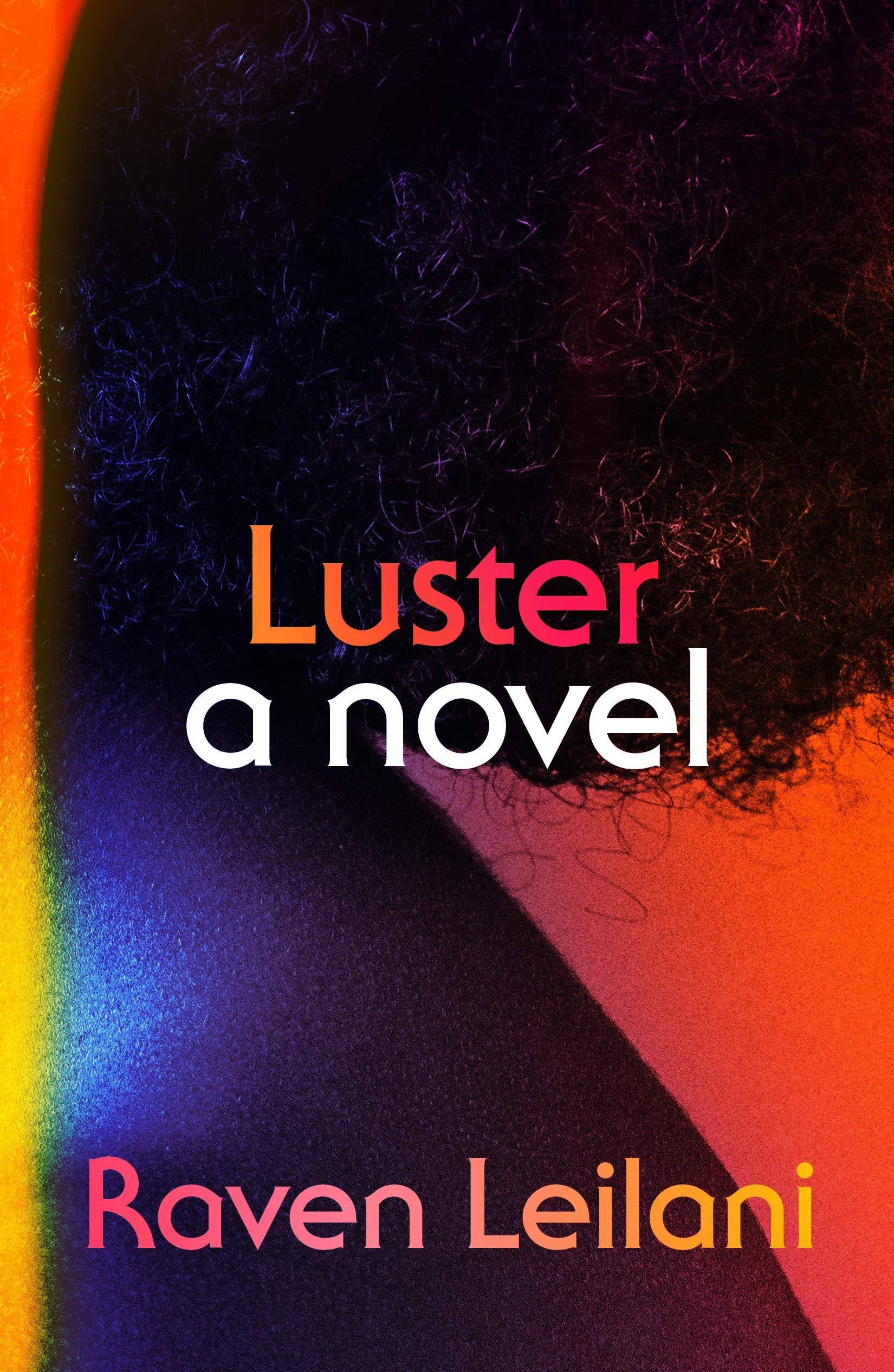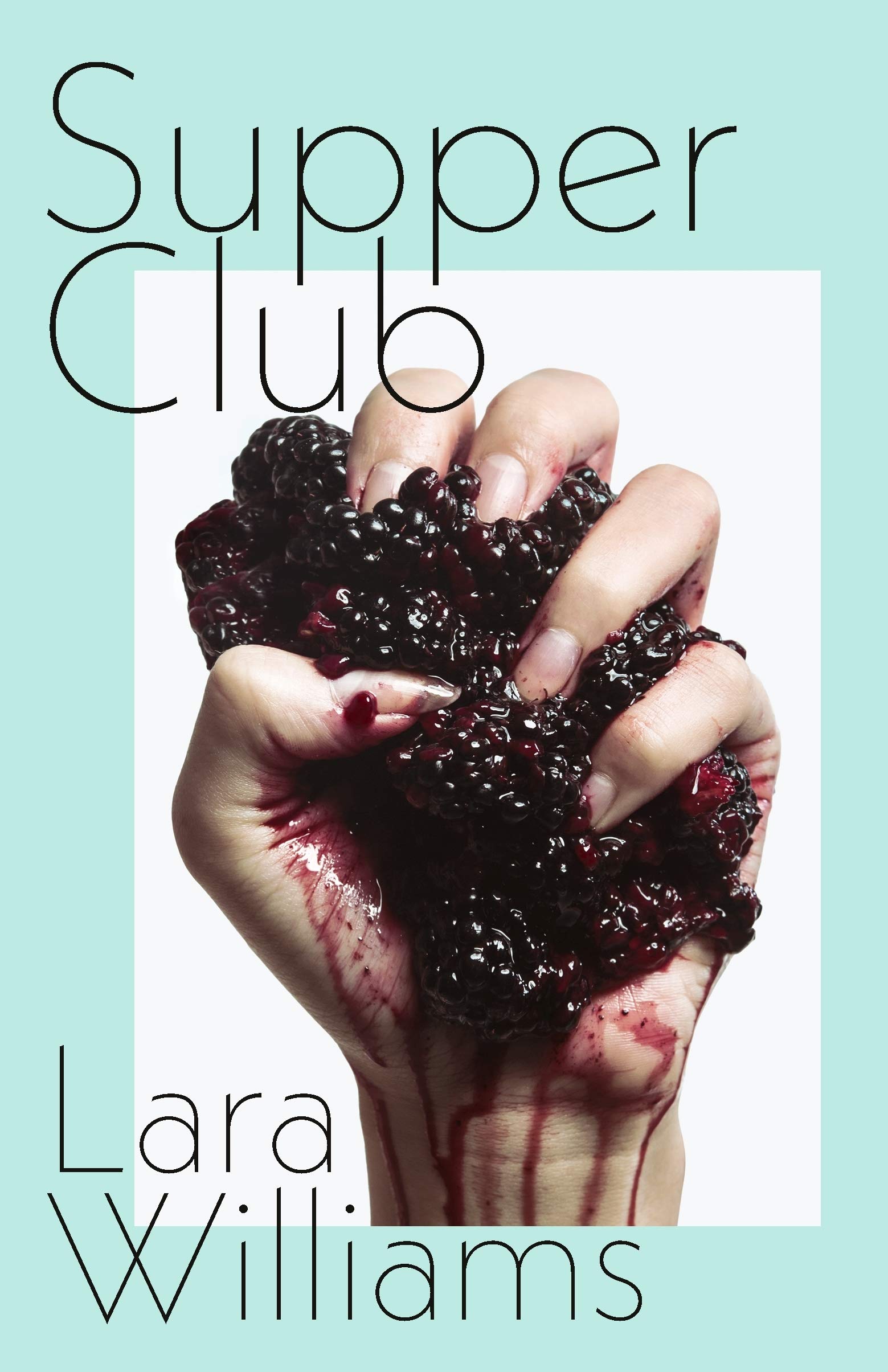I have quite a few short reviews from my Goodreads account that I figured might be a good place to begin sharing my taste with those interested in reading these reviews. Below, you’ll find key stats such as which edition I read from (sometimes I buy the UK version if I like their book design more), the date I finished & reviewed the book, and links to find a copy of the book should you be interested in buying from your local independent bookstore. For the sake of posterity (and so I can see how my own writing has evolved over time), the reviews here are printed without edits from their previous appearance on Goodreads. Please enjoy the following reviews that I’ve gathered over the years!

This review was written on July 27, 2020, after receiving a digital ARC through Edelweiss. Mild spoilers/references to the book below.
Luster by Raven Leilani (FSG e-galley, 2020): What makes Luster so compelling apart from the prose that pulls you forward through the pages is how we are introduced to someone’s life in between the moments that have previously or could possibly define her. A job in publishing is subverted after her sexual misdemeanors in the office have cost her her position, one that, if it mattered, could have eased her into a career as an artist. An affair with a married older man gets crudely exposed to his wife, who then takes her under her wing as a means of service to their nondescript yet functional relationship. A bond between the older couple’s adopted Black daughter and Edie (the protagonist) is juxtaposed in every scene against the double-speak of mutual allyship and a reluctant partnership born out of isolation and the social failings of a white family and social circle that cannot address the inherent traumas of her existence in a Black-fearing social sphere.
Yet at the heart of it, Luster pulls apart the predictability of a story built on the premises of desire and capitalism and launches readers into a discovery of identity, the innate desires that lurk under the surface of our more immediate wants for food, shelter, love, and security. When all of these come into question and are then subsequently stripped away, what’s left in Luster is the coming-into-identity story we needed to read in order to navigate the world it so delicately depicts.

The Way to the Sea: the Forgotten Histories of the Thames Estuary by Caroline Crampton (UK Edition: Granta Books, 2019): I loved how this book managed to sweep me away from reality and transport me along the length of a river I’ve always been curious to learn more about. I heard about this book through the Spirits podcast episode about the Thames estuary and was interested in reading more about the Thames’ long history and evolution.
This book gave me one experience of the estuary, backed by research to further illustrate the world that the author sees as she journeys through its waters, and I look forward to finding more texts like this that give me even more layers of perspective to add to this personal journey.

Star by Yukio Mishima (trans. Sam Bett) (New Directions, 2019): Mishima provides a peek into the life of Rikio Mizuno, an overworked film actor at the height of his career. From Rikio’s narration, we learn about his grueling work schedule, his intense immersion into his acting roles, and his relationship with Kayo, his personal assistant who understands him probably the most out of anyone. In the span of 90 pages, I’ve learned more about this actor’s dissociation from reality and how Mishima prepares me as a reader to understand the core of Rikio’s beliefs by way of tense-shifting between the two realities and using the motif of a mirror to gaze into the parallel lives that Rikio might or will succumb to.
I also want to praise the translator of this work, Sam Bett, who made these very precise English language choices as mentioned above to authentically capture Rikio’s transformation.

Supper Club by Lara Williams (UK Edition: Hamish Hamilton, 2019): I picked this up on my trip to London after seeing so many good reviews about this book. I knew I wanted to read something British while I was in England, and when I read through the first few pages in the store, I knew this was the book I wanted to read to complement my experience of traveling to a place I’ve always dreamed about seeing with my own eyes.
What resonated with me after finishing this book was how the language sucked me in and how Williams managed to create new sensations and new images of the things I already know about the world with the jarring juxtaposition of words I never considered placing next to each other. As a writer, I found this skill for language very inspiring, as it’s a skill I’ve been trying to harness for myself while getting my MFA, so it was reassuring to see a novel with language working at its strongest on the shelf of an everyday bookstore.
I’m so glad to have read this book when I did, after experiencing my own relationship traumas and still being haunted by them. This book was a great awakening for me, a reminder that a woman’s body can be reclaimed as her own, and it’s okay to take up the space that you unabashedly occupy in this world.

Somewhere in the Middle: A journey to the Philippines in search of roots, belonging, and identity by Deborah Francisco Douglas (Peaceful Mountain Press, 2019):
“I am not defined by just a name. I am the only one who can define me, and I will continue doing so for the rest of my life.” —Deborah Francisco Douglas
When I first heard about this book, I was thrilled to finally see a documentation of my own identity crisis. I’ve always known of my mixed-race identity (also Filipino American like Deborah), but because I was born and raised in the U.S., I never felt like I fit in anywhere…Until I read this book! Here is another human being who has grown up with that same conflict of having to acknowledge her multicultural identity and define herself to others when she at times wasn’t sure of that definition herself. Deborah’s memoir has broadened my once very strict definition of my multicultural identity, an identity that adhered so strongly to a name I never felt comfortable ascribing to myself. Now, I realize that I’m not as alone as I think in this grey area, this place “somewhere in the middle” of two cultures, and that reading about others’ experiences and listening to how others define themselves in this middle ground could help me understand my own place and expand that definition of identity so now I’m, at last, included in my own criteria. This book has helped me grow to accept my own identity by way of challenging what I’d always thought about identity alongside Deborah’s journey.

Silence: In the Age of Noise by Erling Kagge (Vintage, 2018): While reading this book, I often found myself reaching for it in moments when either the noise around me was too much to bear and I was powerless to control or manage it, or whenever I sit in the silence of my room before the rest of the world wakes up and read to slow myself down, absorb how to shape and take the silence in before starting my day.
I found myself nodding along vigorously at the statements and conclusions made about the silences we can create for ourselves, that cathartic feeling of “Oh yeah, I really do get what you’re saying; in fact, it feels as if I’ve known it all along.” I’ve become a lot more mindful of the ways I actually block out silence and use noise as a device to stop myself from thinking. This book has reassured me that it’s okay to sit in silence, that one could learn so much about oneself in that space. I intend to make it a part of my daily life now, to understand myself and the space I take up by reaching for the silence within and in the world around me.

Invisible Cities by Italo Calvino (trans. William Weaver) (Harcourt, 1974):
“‘Memory’s images, once they are fixed in words, are erased,’ Polo said. ‘Perhaps I am afraid of losing Venice all at once, if I speak of it. Or perhaps, speaking of other cities, I have already lost it, little by little.’” —Italo Calvino
Calvino has managed to vocalize my exact sentiments on recalling cities and travels with affected nostalgia. This is also the first translated work of fiction I’ve read that has also taken great care with the poetics of each vignette. Definitely a book I’d recommend to the pensive traveller or the pastoral ponderer.

Dear America: Notes of an Undocumented Citizen by Jose Antonio Vargas (Dey Street Books, 2018): Another book to add to the stack of required reading for America. Vargas’ book has challenged my idea of the immigration crisis in this country while also tugging at the Filipinx part of my heart. His speculation of what makes him the person he is today, the career he ended up in as opposed to the path he wanted to take, hits home for me as a writer and creator observing the world.
At what point does your voice, your reason to speak, become a cry for visibility in a country you wanted to be able to call your home? A country that, even after the series of actions you had to take to exist in a place that forced you hide, and even after becoming visible, still doesn’t know what to do with you? I don’t know how we got here, but I aim to understand what we can do now.

In Other Words by Jhumpa Lahiri (trans. Ann Goldstein) (Knopf, 2016):
“La realità mi ha fornito qualche seme. Home immaginato tutto il resto.”
“Reality provided the seeds. I imagined the rest.” —Jhumpa Lahiri
Lahiri has crafted an intellectual long-form essay on her love and constant conflict with the Italian language. Her immersion into a language and culture she is completely foreign to, has no ancestral connection with, motivates any reader, linguist, writer, étudiant de vie on what it takes to embrace your passion, despite the cultural and sociological conflicts that implore you to “see reason.” This is a meditative and philosophical work at heart, one that is hard to come by in modern literature, and it really makes you take a step back and consider what it is that you want in life, what drives you to ostracize yourself from the country you’ve known your whole life to pursue something that holds more meaning to you.

The Golem and the Jinni by Helene Wecker (Harper Perennial, 2013): I picked this up when Helene Wecker herself spoke at my university, having received the Cabell First Novelist Award for this book. It’s the first book I’ve picked up since reading a long string of required reading, and I’m so glad this was the one.
Wecker has spun a fantasy the likes I haven’t seen since Cornelia Funke penned the Inkheart trilogy. A beautiful backdrop of a city back in time with recollections of a desert far away, I was lost in the world Wecker beautifully illustrated.
What I thought was out of place was how very coincidentally connected her characters were, but one can contradict saying what’s the point of a tale of myths and sorcery without running into the right people?
Lastly, what makes this fantasy novel so compelling is that it provides insight on what it means to be human through non-human characters.
Did any of these books spark your interest? Let me know—I’m always excited to hear when a recommended book gets shared. ☺️